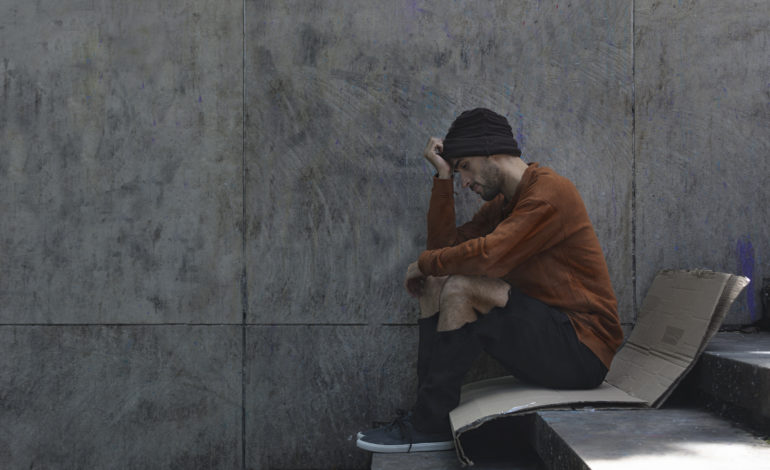The United States was once known as a prosperous country where everyone had a chance to improve their livelihoods and live the “American Dream”. Unfortunately, the “American Dream” is a past idea that we often romanticize. High rent, increasing prices for goods, limited job availability, an increase in home prices, the widening wealth gap, and no rise in wages has led to the housing crisis in the United States, putting many people under the poverty line, meaning they are one paycheck away from being homeless. Poverty and homelessness in the United States are growing epidemics. With homelessness comes hunger, trauma, depression, stigma, and illness.
“Hunger and Homelessness Awareness Week, November 13th-21st, is an annual program where people come together across the United States to draw attention to the problems of hunger and homelessness. Participating groups spend the week holding a series of educational, service, fundraising, and advocacy events”.
Statistics on homelessness in the United States
- As of January 2020, there were 580,466 people experiencing homelessness in the United States
- Most of the homeless population (70 percent) are individuals, and the rest are families with children.
- Unaccompanied youth (under the age of 25) account for six percent of the homeless population
- “Chronic homelessness” is defined as 1) being continuously homeless for at least a year, or 2) being homeless at least four times in the last three years for a combined length of time of at least a year. These individuals often have disabilities, both mental and physical. Chronically homeless individuals are 19 percent of the homeless population.
- Veterans make up six percent of the homeless population
- Out of every 10,000 males in the United States, 22 are homeless. For females, this number is 13.
Why is homelessness on the rise in the United States?
Two trends are primarily responsible for the rise in homelessness over the past 20-25 years: a growing shortage of affordable housing and a rise in poverty. Homelessness and poverty are tightly linked. Individuals living in poverty are frequently unable to pay for food, housing, childcare, health care, and education. Difficult choices must be made between which necessity one must give up. Often, housing is given up, which absorbs a high proportion of income. Living in poverty means being an illness, an accident, or a paycheck away from living on the streets. Two factors help account for increasing poverty: diminishing employment opportunities for large workforce segments and the declining value and availability of public assistance. Subsidized government programs such as housing, childcare, and food stamps are being cut left and right, leaving individuals who depended on these programs making hard decisions between paying rent or buying groceries.
Mental health and poverty
Just as homelessness and poverty are inextricably linked, so are poverty and mental health. Individuals who experience poverty, especially early in life or for a long time, are at risk of adverse physical and mental health complications throughout their lives. For example, poverty in childhood is associated with a decline in academic achievement, poor cognitive and behavioral outcomes, depression, anxiety disorders, delinquency, and an increased rate of almost every mental health disorder in adulthood. In addition, poverty in adulthood is linked to depressive disorders, anxiety disorders, psychological distress, and suicide. In other words, poverty and homelessness have long-lasting impacts that are often experienced for many years, even after the individual rises above poverty.
Hunger and mental health
Living in poverty or being homeless goes hand in hand with hunger. Individuals living in these dire conditions often do not know where their next meal will come from. They often have to choose between paying for shelter or paying for food. As a parent, not being able to feed your children not only affects the health and future of your children but can have a lasting traumatic impact on yourself. Our society tells us that we must provide for our children but what happens when our social systems fail us? What happens when we cannot provide for our children? We, as parents, are at risk for developing post-traumatic stress disorder, low self-esteem, suicidal thoughts, and depression. The American Academy of Pediatrics revealed that mothers with school-aged children who face severe hunger are 56.2% more likely to have PTSD and 53.1% more likely to have severe depression. In addition, the inability to feed your loved ones can have traumatic effects on a person’s mental health.
- Hunger Free America found that 37 percent of parents nationwide were cutting the size of meals or skipping meals for their children in the spring of 2020 because they did not have enough money for food.
- A study published in the American Journal of Preventive Medicine determined that food insecurity was associated with poorer mental health and specific psychosocial stressors.
- The USDA has found that households headed by single women had the highest hunger rates (28.7 percent).
- USDA also found that adults with disabilities, especially mental health disabilities, have exceptionally high hunger rates.
- In 2020, an estimated 54 million Americans, including 18 million American children, suffered from hunger. (The Impact of the Coronavirus on Food Insecurity in 2020)
Groaning empty stomachs in children cause inattentiveness, hyperactiveness, aggression, and moodiness. Hunger has a direct effect on poor academic performance. Fifty percent of children facing hunger will need to repeat a grade. Nutritious food is needed for proper growth and development and is needed for our brains to function and develop. The brain is not fully developed until an individual is approximately 24 years old. As a result, starving brains in children can result in learning disabilities and long-term cognitive delays.
Finding solutions
Unfortunately, our country is in a tough spot politically, so passing legislation to aid and promote social programs that combat hunger and homelessness is challenging. Without legislation to increase wages, produce more jobs, and provide social programs, ending the homelessness and hunger epidemic may not be in our near future. However, what we can do as a community is raise awareness by educating ourselves and others, breaking down the stigma associated with poverty and homelessness, and volunteering or providing resources for those in need, especially as we approach the holiday season.



